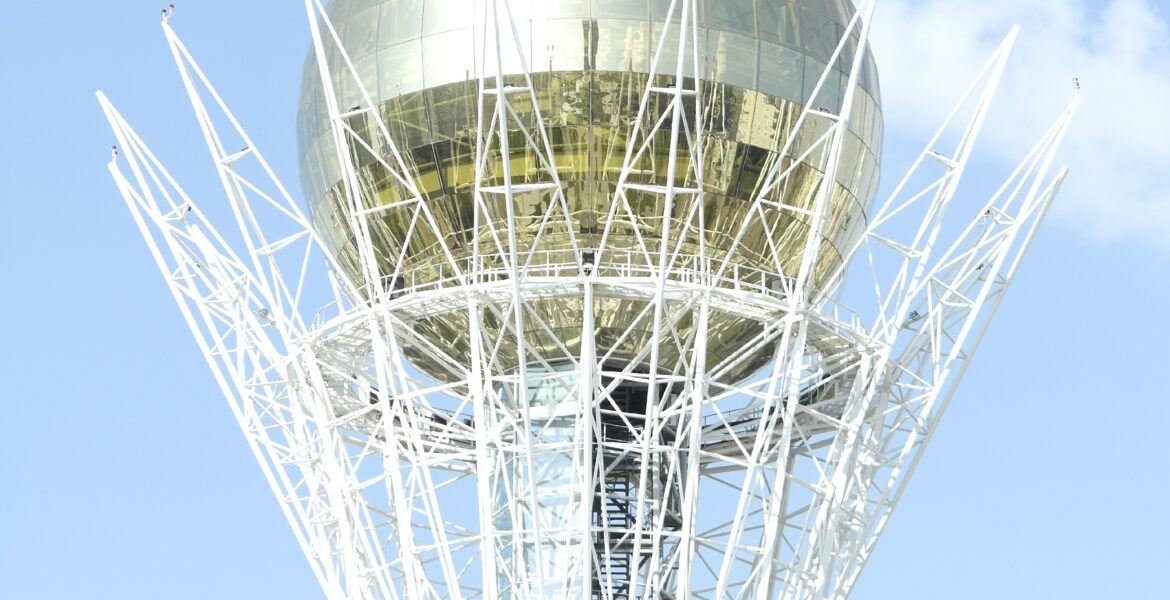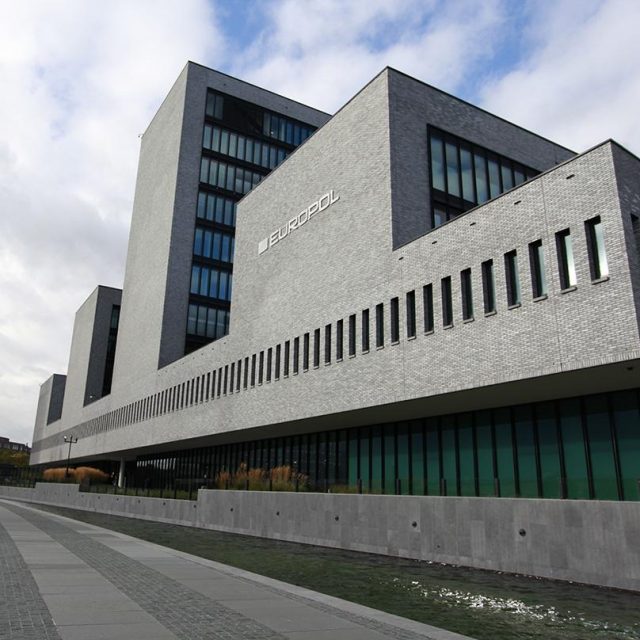Photo by Travel With on Unsplash
The West, including Europe, is heading for a potential fresh “struggle” with Russia and China in the race to win influence in Central Asia.
That is one of the messages to emerge from a conference in Brussels on “Central Asia and the EU’s Historic Choice.”
The lively debate on 7 December heard the findings of a major study on how the EU and wider international community might “make the most” of opportunities in the region.
The two hour conference, spread over two panel discussions, was held at Brussels Press Club and organised by the International Tax and Investment Centre, based in Washington D.C. and the Brussels-based EU Political Report.
The first panel looked at the “view from the West” while the second considered the situation “from the East.”
The study, recently launched last week in Paris, was authored by Vladislav Inozemtsev, Director of the Center for Post-Industrial Studies and a Senior Research Fellow with the Polish Institute of Advanced Studies.
In his opening address, he cautioned that while, in the past, energy-related issues in Central Asia had been the most significant interest for the West this was now rapidly changing.
This was due to a growing realisation, he noted, of the difficulties in raw material extraction and also energy transportation to Europe.
The EU had subsequently shifted its focus to sourcing energy supplies from other parts of the world, including Australia, while, at the same time, Russia sought to extend its influence in the region, he said.
The result, he predicts, will be a new “struggle for influence” in the region between the West and Russia and China.
The detailed 30 page report, available on online from 8 December, analyses the economic and geopolitical situation in Central Asia.
It states that while Russia is “preoccupied with its war” in Ukraine and China “with its economic malaise” that “this is the time” for the EU and others “to comprehensively engage with Central Asia.
Addressing what he called “the geopolitical complexities” in Central Asia he noted that the region’s “most valuable asset” remains its energy resources. A result of this is that the economies of countries like Kazakhstan and Uzbekistan had increased 3 to 4 fold.”
He told the packed audience, “At the same time there is constant competition for these natural resources.”
Much of the region’s energy currently goes to China and Russia and both try to “seduce” Central Asian states. But, even so, economically the region is “still very much connected to Europe and relies heavily on European support,” he said.
He went on to caution that “if the West wants to be serious player in the region it needs to be much more active there.”
He noted that former EEAS chief Catherine Ashton had made just one visit to the region in her term in office and her successor, Federica Mogherini, went only twice.
This has improved a lot, though, he said, with current EU foreign policy chief Josep Borrell visiting Central Asia three times already this year.
He asked, “It is clear that Russia very much intends to stay there. So, the question is whether the West really is committed to engaging in this region while it remains so preoccupied with the war in Ukraine.”
Analyst John Roberts, a senior fellow at Atlantic Council’s Global Energy Centre and a senior partner with Methinks Ltd., also spoke and focused on the case for Western engagement in the region.
Up to now, Central Asian oil and gas has been reaching Europe by transiting through Russian territory. Kazakhstan shipped some 97 percent of its export oil flows through Russia in 2022, for example.
But the Russian authorities ordered the Caspian Pipeline Consortium to be blocked several times, “most likely”, the event heard, in response to Kazakhstan’s readiness to observe Western sanction policies.
He said he wanted to highlight one of the issues raised in the paper authored by Inozemtsev.
This states that working with Kazakhstan and other Central Asian countries to establish alternative routes to the European market through Kazakhstan, the Caspian Sea, Azerbaijan, Georgia and Turkey “would help alleviate this problem in the medium and long term.”
Roberts said, “There is no easy way to achieve a big increase in exports of conventional fossil fuels from Central Asia to the West that avoids Russia.
“A new southern gas corridor could be created by that could cost up to €30billion and where on earth is that going to come from in an age when EU won’t pay for large fossil fuel projects?”
He added, “Increasing uranium exports from the region could be one solution while development of nuclear, renewables and hydrogen within Kazakhstan itself could be an important.
“Kazakhstan needs to think regionally and about its neighbours. The future lies in regional cooperation because while exports of energy may increase it will be only by a bit.”
Another speaker was Tatiana Mitrova, a Research Fellow at the Centre on Global Energy Policy at Columbia University.
Speaking remotely from Cyprus, she lamented that “when it comes to Europe, Central Asia and energy it is a story of missed opportunities.”
She added, “At first, back in around 2009, we thought the region was going to be the new Gulf but this has turned out not to be the case partly because of so many logistical issues.This has caused a lot of disappointment and a slowing down of enthusiasm.”
She said, “Currently, there are very limited volumes of energy from the region going to Europe. Most goes to China and Russia.
“But, not least due to the war in Ukraine, it has become clear that Central Asian countries should be top of the list of priorities for EU countries. This is the area which Russia regards as being at the core in its sphere of influence so it is very important for the EU and the U.S to keep up a presence in the region and build up new ties. The increasing influence in the region of Russia and also Iran is frightening and if Western companies are not operating there then it will be Russian and Chinese companies that will be.”
She added, “Western funding can help with new technologies and these should be developed but the most important first step is energy efficiency. It is the low hanging fruit which involves minor investment and this is where the West can help most.”
He says, “We are witnessing a change of a new political order and Central Asia is on frontline of this change.”
Dr. Antonia Colibasanu, Senior Geopolitical Analyst at Geopolitical Futures and Senior Fellow for Eurasia Programme at the Foreign Policy Research Institute, also spoke, saying it was important to see Central Asia as region for “opportunities and not just challenges.”
While there are “a lot of challenges” consideration should be given to investments, such as in new railroads and fostering connections with Central Asian countries.
She said, “Central Asia is becoming a new borderland for us.”
She highlighted efforts by two major EU member states, Germany, the only EU member to have an embassy in each of the Central Asian countries, and France in building closer links with the region.
She also cited Italy as an example, saying its investments, particularly in technology and energy, had grown by up to 30 percent in years.
But she warned, “Even so, we are still at the very start of what we should be seeing from the EU.”
The event also heard of a “Chinese perspective” from Wesley Alexander Hill, of the Energy, Growth and Security Programme at the International Tax and Investment Centre.
He told the audience how Beijing believes that it can continue to gain from it growing influence in Central Asia.This will be “at Russia’s expense” while China at the same time “will not want to totally isolate Moscow.”
The purpose of Chinese policy in the region, he noted, is to increase its economic activities there and this approach is likely to have a “major impact.”
Examples, he said, include China’s Belt and Road Initiative which itself was launched in Central Asia along with some of its projects plus the employment of Chinese labour, all being “trialled” in Central Asia
For China, Central Asia is an “incredibly important space and growing all the time, which is something the West needs to acknowledge,” Hill said.
Another panellist was Dr Ariel Cohen a senior Fellow at the Atlantic Council, who highlighted the new “opportunities for Europe” in the region, “a strategic area which has become even more important since the invasion of Ukraine.”
The war in Ukraine had disrupted transportation of energy and the supply of vital resources to Europe and the world, not just natural piped gas but also via rail and air routes connecting Central Asia with Europe.
The U.S remains “committed to diplomacy” but there had been “a lot of rhetoric” on Central Asia and policy was driven by current crises and military engagements.
Central Asia, though, is “eager” to integrate into global supply chains and it was “vital” that its states “do not fall into the remit” of either of the two great powers in the region.




